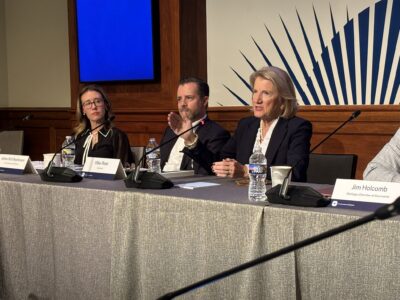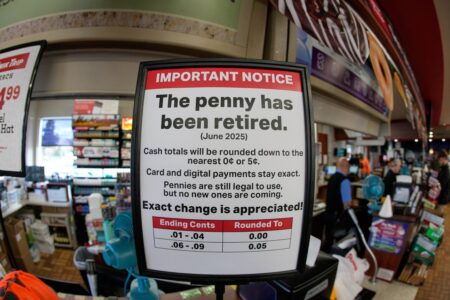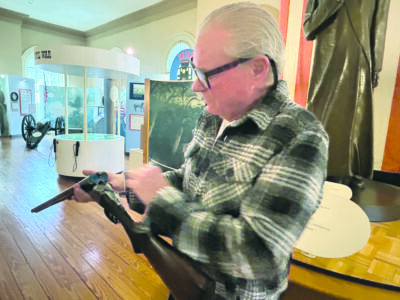Capito Says Bipartisan Talks Are Taking Place as Shutdown Hits One-Month Mark

U.S. Sen. Shelley Moore Capito, right, speaks at a U.S. Chamber of Commerce event Thursday in Washington. (Photo Courtesy of U.S. Chamber of Commerce)
CHARLESTON — The federal government is entering yet another week shut down amidst disagreements between Republicans and Democrats in the U.S. Senate, though West Virginia’s senior senator sees some light at the end of the tunnel.
Sen. Shelley Moore Capito, R-W.Va., held a conference call Thursday to update reporters on negotiations to reopen the federal government, which has been shut down for the last 31 days.
“I’ve said repeatedly…that (a government shutdown is) the road to nowhere,” Capito said. “It’s actually more miserable now than I can ever remember it in terms of impact on individuals, on people who work for the government and on people who rely on services from the government. It is a total disservice to them.”
The U.S. Senate held its 13th failed vote Tuesday to pass a clean continuing resolution to fund the federal government through Friday, Nov. 21.
Despite Republicans having a majority, the House of Representatives-approved resolution needs 60 votes in order to be considered by the full Senate.
Most of the Senate Democratic caucus — under Minority Leader Chuck Schumer, D-N.Y. — have refused to support the resolution, instead uniting around their own proposal that includes a continuation of Affordable Care Act subsidies put in place during the COVID-19 pandemic and set to expire at the end of the year.
Without these subsidies, ACA insurers could increase premiums by an average 26% according to the Kaiser Family Foundation, with some enrollees seeing larger premium spikes. The Kaiser Family Foundation estimates that enrollee premium payments (net of tax credit) could increase by 114%.
The federal government has remained shut down since the beginning of the new federal fiscal year on Oct. 1. While Republicans in Congress have said they are willing to discuss continuing some of the ACA subsidies, they won’t consider the issue until Senate Democrats vote for the continuing resolution that would reopen the government.
While both sides have remained rigid in their stances, several media outlets covering Congress began reporting Wednesday night and Thursday morning that bipartisan talks have begun between some senators toward a resolution that could reopen the federal government beginning next week.
“I think there’s more movement. There is bipartisan talk. I was just in one last night,” said Capito, the fourth ranking member of Senate Republican majority leadership and a subcommittee chair for the Senate Appropriations Committee.
“We’ve just had obstruction every step of the way, but the bipartisan discussions that I’ve been involved in and others are (asking), how do we get out of the shutdown?” she continued. “Do we do a continuing resolution of a longer or shorter time period? What kind of appropriations … can we get through? We’re going to make an effort.”
Reopening the federal government through Nov. 21 would allow both the Senate and House of Representatives – which has remained in recess during the shutdown – to agree on conference committee reports being negotiated on three long-term appropriations bills for the current federal fiscal year that began on Oct. 1.
“If we can get the three bills that we’ve done and then (appropriations bills for) Interior and Transportation, we’re pretty much going to be funding 90% of the government,” Capito said. “We’re hoping we can do that by December, but we’ve got to get agreement. Before we can enter into formal negotiations, we have to have the government open. So, they’re going to have to vote to open the government before we can proceed forward.”
As the shutdown continues, non-essential federal workers remain furloughed or even laid off in some cases. Military personnel, law enforcement, air traffic controllers and other essential federal employees are continuing to work without pay. And the Supplemental Nutrition Assistance Program will halt sending electronic benefit transfer funds to more than 40 million Americans, including approximately 270,000 West Virginians, or 18% of the state’s population.
A possible standalone bill to keep SNAP funded in the short-term is on the table, though it is unlikely the bill will be put up for a vote before Saturday, when SNAP payments through EBT stop.
“I did my research on the bill and decided this is important to West Virginia, so not only would I vote for it, but I am a co-sponsor of the bill,” Capito said.




